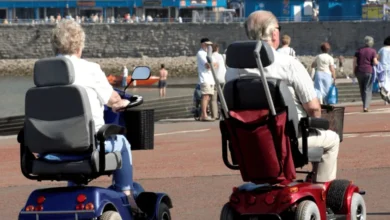How to Maintain Health and Beauty in a Time of Constant Stress

Beauty, health and stress have a relationship. Beauty is an indicator of health, as a healthy person usually has healthy skin, hair and nails. However, stress can affect skin health by causing rashes, dryness, hair loss and other problems. Stress also causes sleep problems, which also affects appearance and overall health.
But what to do if our lives are accompanied by large and small stresses every day? Let’s talk about preserving health and beauty under chronic stress.
Symptoms of Stress
The body’s reaction to stress is different for each individual, but there are common symptoms. Here are some of the most common symptoms:
- Physical symptoms: muscle pain, headaches, dizziness, rapid heartbeat, high blood pressure, sleep problems, loss of energy and constant fatigue.
- Emotional symptoms: anxiety, irritation, depression, nervousness, impotence, panic, aggressiveness.
- Behavioral symptoms: increased or decreased appetite, sleep disturbance, lack of desire to communicate, decreased social activity, overreaction to common situations.
- Cognitive symptoms: decreased attention and concentration, forgetting details of events, problems with decision-making, impaired memory, feelings of contempt.
All of this literally “eats away” at us, so we should constantly keep our hand on the pulse and minimize the destructive effects of stress.
The Impact of Stress on Our Skin
Our skin is a mirror of our health. When we experience stress, our body releases stress hormones such as cortisol and adrenaline. This leads to various changes in the body that affect our skin’s health and beauty.
The most common changes are:
- A dramatic increase in sebum. When the body is stressed, cortisol levels increase, leading to excessive sebum activity.
- Appearance of rashes. Stress can lower the immune system and make the skin more sensitive to external irritants, such as bacteria and fungi, which cause rashes to appear.
- Dry skin. Stress can make the skin drier due to an imbalance in the hydro-balance. This leads to skin deterioration, premature wrinkles and other signs of aging.
To prevent these problems, it’s important to reduce stress levels and take care of a healthy lifestyle. It’s important to eat a healthy diet, get enough exercise, drink enough water, give up unhealthy habits and generally lead a healthy lifestyle.
Tips for Staying Healthy and Beautiful During Times of Constant Stress
Maintaining and restoring health and beauty should be approached holistically. We have prepared the simplest tips for you, following which you will minimize the impact of stress on the body:
- Rest. It’s important to make time for rest and relaxation, such as yoga, meditation, massage, painting. Allow yourself to rest, enjoy life, do the things you love, and abstract yourself from your problems. This rule means that if you want to bet at a bookmaker online or watch funny TV shows after a long day, you should definitely do this. This can help reduce stress levels and improve your overall health.
- Get regular sleep. A lack of sleep can lead to increased stress levels and worsened skin conditions. Go to bed at the same time and try to get at least 7-8 hours of sleep a night.
- Healthy eating. Eating the right foods keeps your skin healthy and beautiful. Choose healthy foods rich in antioxidants and vitamins, reduce sugar and salt, and give up fast foods.
- Physical activity. Regular exercise is best for reducing stress levels and improving circulation, which has a positive effect on your skin. Exercise, yoga, swimming, jumping, something that gives you pleasure.
- Regular skin care. When stressed, your skin loses moisture and beneficial components. So it’s your job to hydrate, nourish, and protect your skin as much as possible. Be sure to follow every step of the way and don’t forget to indulge in pampering beauty treatments that make you feel good.
- Control the amount of coffee you drink. Large doses of this beverage contribute to increased stress levels, poorer sleep and skin conditions. Try reducing your coffee intake or giving it up completely.






